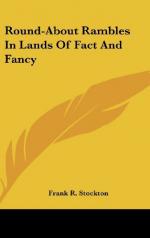Now the Bittern is a very unsocial bird, and as he took not the least notice of the new comer, the Pelican could not pick a quarrel with him. Therefore he turned to his cousins, and said: “I have just come from my pleasant home on a rocky island. The waters make music there all day long, and the green moss gleams through the white foam, and gay-colored fish sparkle in the sunlight; so that when men behold it they exclaim: ‘See! what a beautiful spot!’ There are some birds that like dingy pools, where only coarse rushes grow, where there is nothing but blight and mildew, where even carrion crows will not fly, and at which men shudder.”
Now this exactly described the places the Bittern prefers to all others; but, as he really considered them very captivating, and hated the very sight of mankind, he did not feel abashed by the Pelican’s stinging rebuke, and perhaps took it for a compliment; and there is no knowing how long he would have staid there, if a frisky little Hoopoe had not chanced to alight on a tree that had fallen across a foaming brook not very far from the group of birds.
Not liking so much company, the Bittern stalked away. The Hoopoe nodded so often to the birds that its beautiful tall crest trembled as if a breeze stirred it, and having preened its prettily-barred feathers for awhile, it began to talk as fast as ever it could.
“I have came from a long distance, and only stopped twice on my way to get a meal of insects, which I can dig out of decaying wood with my long curved beak, very fast, I can tell you. And what do you think I saw in that place I came from? You would never guess. Why, men had some pet Cormorants that they had trained to catch fish for them! Oh! it was fun! And I heard these men say that in the days of Charles I. of England (I hope you know who he is, for I’m sure I don’t), Cormorants were kept by nobles and kings for the purpose of catching fish, and that there was attached to the Court an officer called the King’s Master of the Cormorants. Did you ever hear the like of that?”
[Illustration]
Although this was strictly true, the Cormorants had never heard of it; but, before they could answer, a loud, deep voice cried; “Heigho! What is all that?”
The startled birds turned towards the spot from whence the voice proceeded, and there, perched on a lonely rock, a good distance to the left of them, was a great bird with very large bright eyes and powerful curved beak.
Neither the Hoopoe nor Pelican had ever before seen him, but the Cormorants knew him very well. He was the Peregrine Falcon. And they knew him because, like them, he chose rocky ledges, high and inaccessible, for his nest. And although his nests were usually on loftier crags than theirs, they were quite neighborly, especially as they did not chase the same prey, the Cormorants drawing theirs from the sea, and the Falcons finding theirs in the air.




